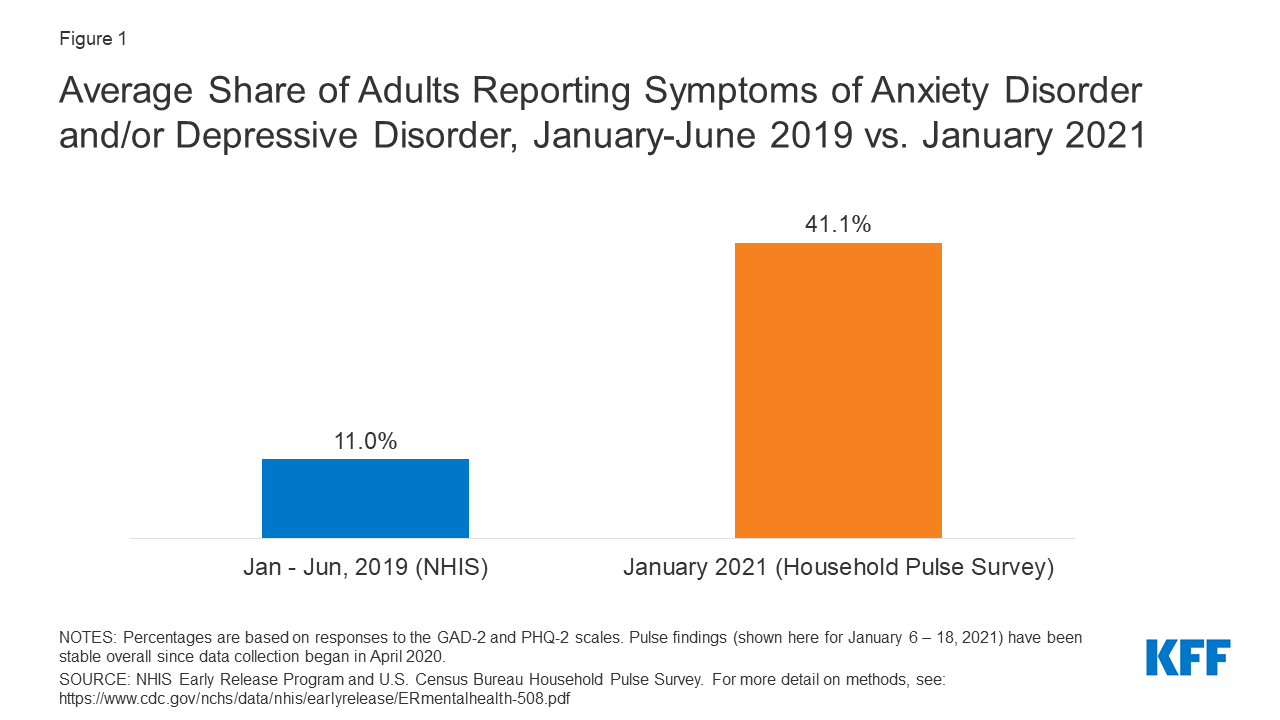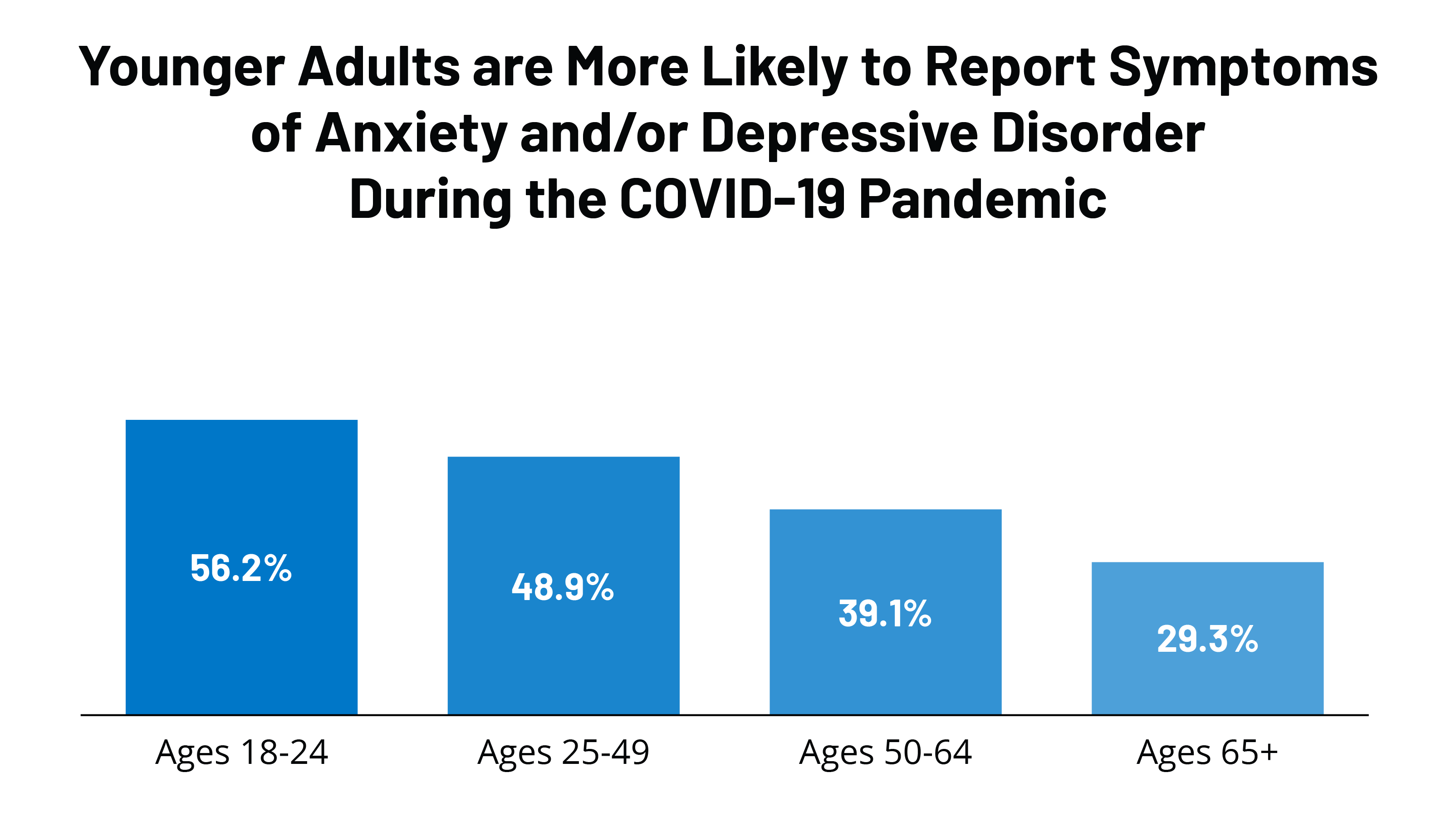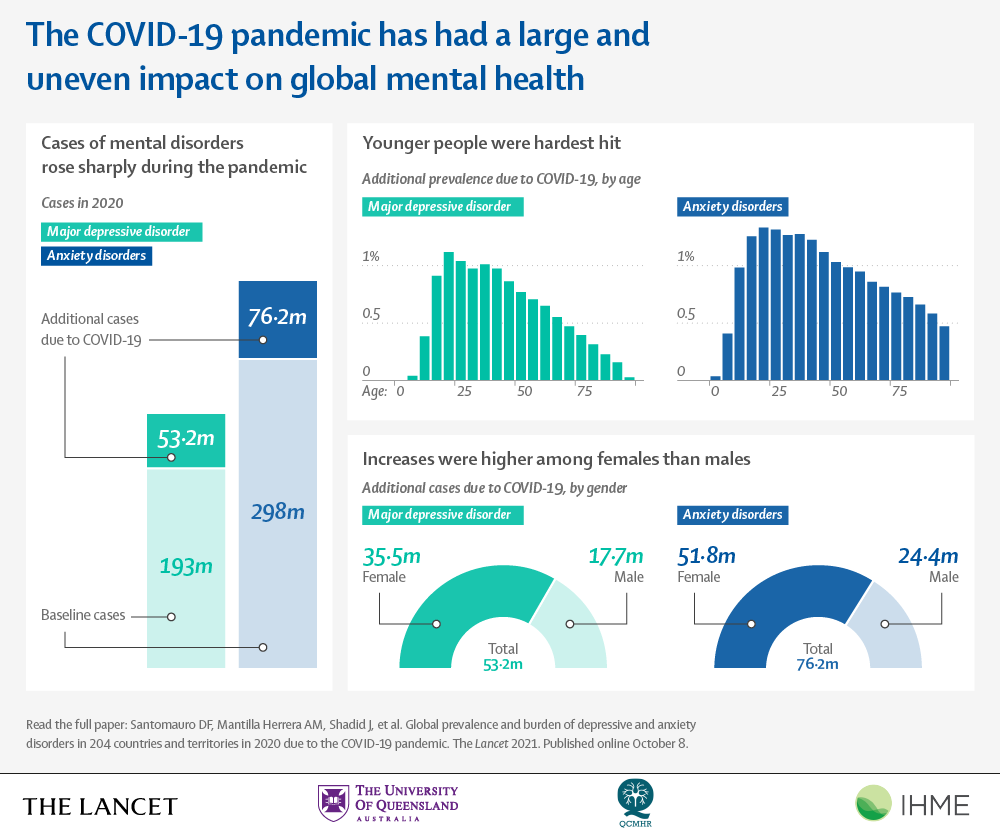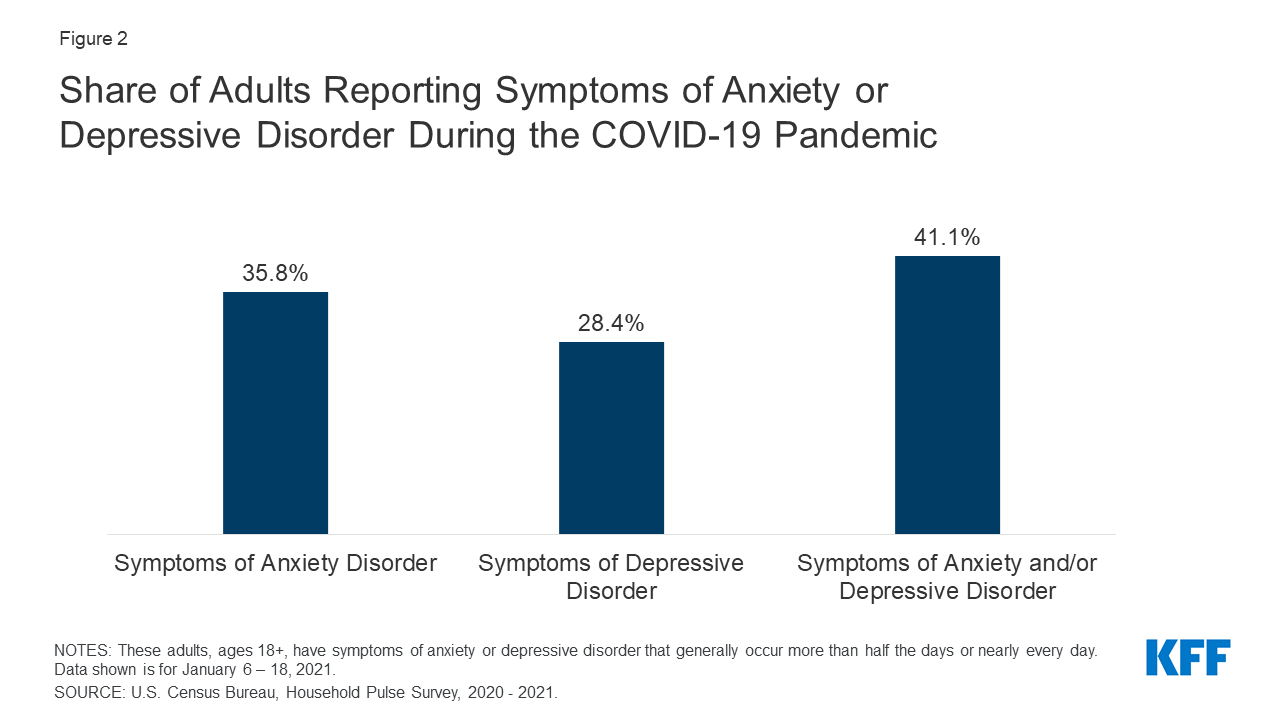In Most Cases a Person With an Anxiety Disorder
Panic disorder obsessive-compulsive disorder OCD post-traumatic stress disorder PTSD generalized anxiety disorder GAD and phobias social phobia agoraphobia and specific phobia. Will fail to respond with fear in a dangerous situation.

The Implications Of Covid 19 For Mental Health And Substance Use Kff
While specific anxiety disorders are complicated by panic attacks or other features of the disorder GAD has no specific focus.

. Severe anxiety symptoms are burdensome and concerning for those who experience them. In most cases the anxiety is provoked by every day situations such as making one-on-one conversation at a party or eating and drinking in front of. Asked Apr 18 2016 in Psychology by Zada8201.
Obsessive-Compulsive Disorder OCD is an anxiety disorder and is characterized by recurrent unwanted thoughts obsessions andor repetitive behaviors compulsions. This research has shown that those suffering from anxiety often have issues with several neurotransmitters brain chemicals including serotonin norepinephrine and gamma-aminobutyric acid GABA. Transforms his or her distress into symptoms that closely resemble a physical disability.
Generalized anxiety disorder includes persistent and excessive anxiety and worry about activities or events even ordinary routine issues. Not being able to figure out what to do with their worries. They can interrupt daily functioning and impact enjoyment of life.
The person constantly worries about everyday life. Panic disorder with or without agoraphobia PDA is the next most. The worry is out of proportion to the actual circumstance is difficult to control.
How to Treat the Most Common Types of Anxiety Disorders. Agoraphobia or a fear of situations that are difficult or embarrassing to escape from. According to the APA specific types of anxiety disorders include.
A combination of any of the above symptoms. Generalized anxiety disorder ongoing and. Generalized Anxiety Disorder GAD is an anxiety disorder characterized by chronic anxiety exaggerated worry and tension even when there is little or nothing to provoke it.
1-3 With a 12-month prevalence of 103 specific isolated phobias are the most common anxiety disorders 4 although persons suffering from isolated phobias rarely seek treatment. Everybody has felt anxiety. Post-Traumatic Stress Disorder PTSD Obsessive-Compulsive Disorder OCD Separation Anxiety Disorder.
4 At least two of the distinct identities or personality states recurrently taking control of. Psychological disorders characterized by distressing persistent anxiety or maladaptive behaviors that reduce anxiety Generalized Anxiety Disorder GAD Anxiety disorder in which a person is continually tense apprehensive and in a state of autonomic nervous system arousal. Anxiety disorders are the most prevalent psychiatric disorders and are associated with a high burden of illness.
3 The presence of two or more distinct identities or personal states. There are several different types of anxiety disorders. 1 Inability to recall important personal information.
Approximately about 18 of people ages 18- 54 in a given year have an anxiety disorder in a given year. Generalized Anxiety Disorder GAD If you have generalized anxiety disorder you may feel constantly worried even if there is no real reason to worry about anything. 2 Recurrent imagined or actual symptoms of anxiety or trauma.
Can control the fear if he or she can identify exactly what he or she is afraid of. In most cases a person with an anxiety disorder will fail to respond with fear in a dangerous situation. Whether its about a new social situation a presentation or anything else we all know that feeling of nervousness.
The exact cause of anxiety is unknown and can be caused by a host of factors including. Panic disorder typically develops in late adolescence or. Suffers distress that seems greatly out of proportion to the circumstances.
Generalized anxiety disorder GAD is a traumatic illness and is hard to understand unless you are experiencing it yourself. Common Types of Anxiety Disorders. In most cases if a person has an anxiety disorder their anxiety disorder symptoms will persist for more than six months.
Suffers distress that seems greatly out of proportion to the circumstances. In fact its the most common type of mental health disorder with 33 of people being impacted by an anxiety disorder in their lifetime. In most cases a person with an anxiety disorder.
Simply put people with anxiety have reactions and feelings disproportion with what would be normally expected in that situation. Transforms his or her distress into symptoms that closely resemble a physical disability. Anxiety disorder due to a medical condition includes symptoms of intense anxiety or panic that are directly caused by a physical health problem.
Several studies have shown that brain chemistry imbalances are a very likely cause of anxiety disorders.

The Implications Of Covid 19 For Mental Health And Substance Use Kff

New Global Burden Of Disease Analyses Show Depression And Anxiety Among The Top Causes Of Health Loss Worldwide And A Significant Increase Due To The Covid 19 Pandemic Institute For Health Metrics

The Implications Of Covid 19 For Mental Health And Substance Use Kff
No comments for "In Most Cases a Person With an Anxiety Disorder"
Post a Comment